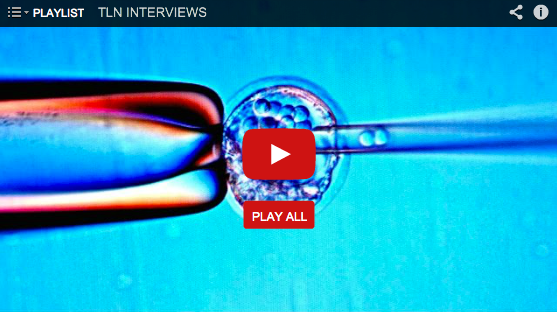New York, NY (PRWEB) April 09, 2014
The Stem Cell Institute, located in Panama City, Panama, will present an informational umbilical cord stem cell therapy seminar on Saturday, May 17, 2014 in New York City at the New York Hilton Midtown from 1:00 pm to 4:00 pm.
Speakers include:
Neil Riordan PhD – “Clinical Trials: Umbilical Cord Mesenchymal Stem Cell Therapy for Autism and Spinal Cord Injury”
Dr. Riordan is the founder of the Stem Cell Institute and Medistem Panama Inc.
Jorge Paz-Rodriguez MD – “Stem Cell Therapy for Autoimmune Disease: MS, Rheumatoid Arthritis and Lupus”
Dr. Paz is the Medical Director at the Stem Cell Institute. He practiced internal medicine in the United States for over a decade before joining the Stem Cell Institute in Panama.
Light snacks will be served afterwards. Our speakers and stem cell therapy patients will also be on hand to share their personal experiences and answer questions.
Admission is free but space in limited and registration is required. For venue information and to register and reserve your tickets today, please visit: http://www.eventbrite.com/e/stem-cell-institute-seminar-tickets-11115112601 or call Cindy Cunningham, Patient Events Coordinator, at 1 (800) 980-7836.
About Stem Cell Institute Panama
Founded in 2007 on the principles of providing unbiased, scientifically sound treatment options; the Stem Cell Institute (SCI) has matured into the world’s leading adult stem cell therapy and research center. In close collaboration with universities and physicians world-wide, our comprehensive stem cell treatment protocols employ well-targeted combinations of autologous bone marrow stem cells, autologous adipose stem cells, and donor human umbilical cord stem cells to treat: multiple sclerosis, spinal cord injury, osteoarthritis, rheumatoid arthritis, heart disease, and autoimmune diseases.
In partnership with Translational Biosciences, a subsidiary of Medistem Panama, SCI provides clinical services for ongoing clinical trials that are assessing safety and signs of efficacy for osteoarthritis, rheumatoid arthritis, and multiple sclerosis using allogeneic umbilical cord tissue-derived mesenchymal stem cells (hUC-MSC), autologous stromal vascular fraction (SVF) and hU-MSC-derived mesenchymal trophic factors (MTF). In 2014, Translation Biosciences expects to expand its clinical trial portfolio to include spinal cord injury, heart disease, autism and cerebral palsy.
To-date, SCI has treated over 2000 patients.
For more information on stem cell therapy:
Stem Cell Institute Website: https://www.celllmedicine.com
Stem Cell Institute
Via Israel & Calle 66
Plaza Pacific Office #2A
Panama City, Panama
About Medistem Panama Inc.
Since opening its doors in 2007, Medistem Panama Inc. has developed adult stem cell-based products from human umbilical cord tissue and blood, adipose (fat) tissue and bone marrow. Medistem operates an 8000 sq. ft. ISO 9001-certified laboratory in the prestigious City of Knowledge. The laboratory is fully licensed by the Panamanian Ministry of Health and features 3 class 10000 clean rooms, class 100 laminar flow hoods, and class 100 incubators.
Medistem Panama Inc.
Ciudad del Saber, Edif. 221 / Clayton
Panama, Rep. of Panama
Phone: +507 306-2601
Fax: +507 306-2601
About Translational Biosciences
A subsidiary of Medistem Panama Inc., Translational Biosciences was founded solely to conduct clinical trials using adult stem cells and adult stem cell-derived products.
Translational Biosciences webSite: http://www.translationalbiosciences.com
Email: trials(at)translationalbiosciences(dot)com

